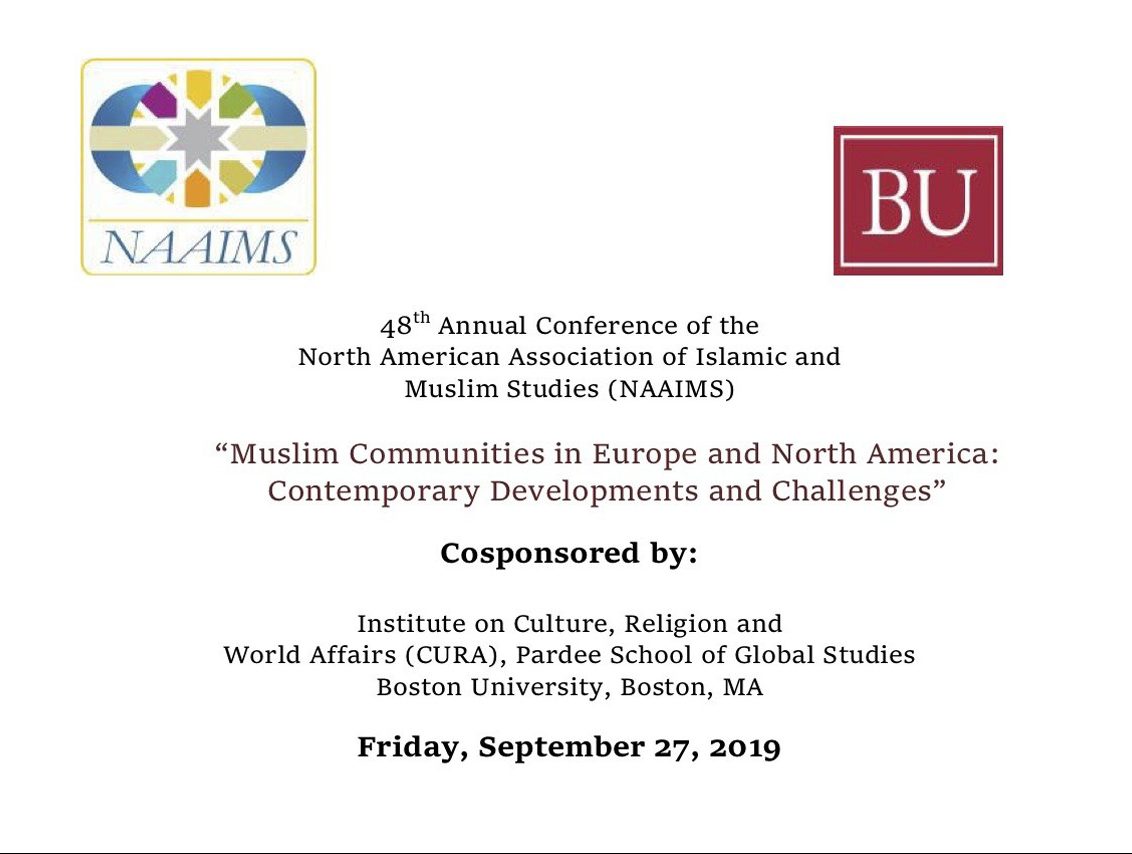48th Annual Conference of the North American Association of Islamic and Muslim Studies (NAAIMS)

About The Event
“Muslim Communities in Europe and North America: Contemporary Developments and Challenges”
Date: September 27, 2019
Venue: Boston University, Boston, MA, USA
Cosponsored by: Institute on Culture, Religion and World Affairs (CURA), Pardee School of Global Studies, Boston University, Boston, MA
Although there have been Muslim communities in Europe since the Middle Ages, they have become a sizable part of the population of modern Western Europe only since the 1960’s, when large numbers began to arrive from Pakistan, the Maghreb, and Turkey to provide much needed labor. When the Asiatic Barred Zone act of 1917 was repealed in 1965, Muslim immigrants began to arrive in the United States, joining existing communities of largely African American converts. In Europe, political opposition to Muslim immigrants arose already in the late 20th century, producing anti-immigrant parties such as France’s National Front.
At the turn of the 21st century, Muslims seeking asylum in Europe and North America due to the destruction brought on by wars in Iraq and Syria, became the driving force behind immigration. According to Pew, the total number of Muslims in Europe in 2010 was around 44 million and growing, while birth rates throughout Europe have fallen well below replacement level. Political and social frictions emerged in many European countries due to these demographic shifts, and full-fledged turmoil erupted starting in 2015 due to the surge refugees fleeing Syria.
Muslim immigration was a top issue in the two countries that took in the lion’s share of refugees: Germany and Sweden. In 2017, the anti-immigrant Alternative for Germany party became the first political party to the right of the Christian Democrats to win seats in parliament since the Second World War. In September 2018, the anti-immigrant Sweden Democrats came in third in national elections with 17.5% of the vote.
In other countries, including the United States, anti-Muslim sentiment has fueled the rise of populist politicians, including in countries of Eastern Europe that have accepted next to no refugees. Throughout Europe and the United States, campaigns against “sharia law” have become common, as have unsubstantiated allegations that Muslim neighborhoods in major European cities have become “no-go zones.” Denmark has recently passed harsh laws that include mandating 30 hours per week of pre-school for immigrants for the sake of fostering Danish values. Many native Europeans fear that Muslim immigrants are intent on Islamizing Europe rather than integrating. Many Muslims in Europe, both native born and immigrants, fear that they will never be accepted as equal citizens even if they do integrate.
Source: Boston University
Location
Boston University


We're always eager to hear from you.
If you’d like to learn more about us or have a general comments and suggestions about the site, email us at